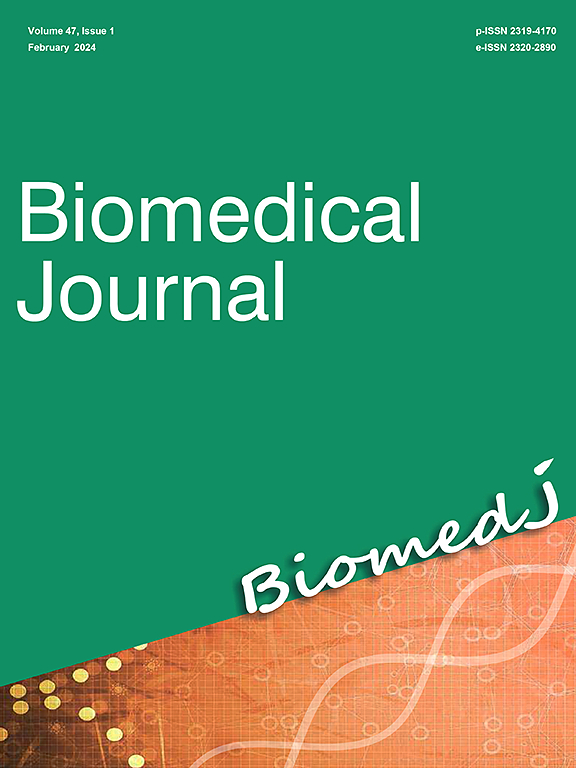miRNA 介导的男性和女性结直肠癌患者时钟基因表达调控及对疾病管理的可能影响。
IF 4.4
3区 医学
Q2 BIOCHEMISTRY & MOLECULAR BIOLOGY
引用次数: 0
摘要
背景:男性结直肠癌(CRC)的发病率和死亡率一直高于女性。CRC 的恶性程度受小非编码 RNA(miRNA)的强烈影响。此外,昼夜节律分子振荡器的失调也与 CRC 的诱发有关。为了分析上述因素对 CRC 进展可能产生的累积效应,我们重点研究了与时钟基因 per2 和/或 cry2 相关的性别偏向 miRNA 的功能,这些基因参与细胞周期控制和 DNA 损伤反应:我们发现了与per2相关的miR-24、miR-92a、miR-181a和miR-21,它们在男性转化结肠组织中上调。所有这些 miRNA 都具有致癌潜能,主要通过抑制肿瘤抑制因子磷酸酶和天丝同源物(PTEN)和/或 p53 发挥作用。男性 PTEN 和 p53 的下调通过抑制肿瘤抑制因子 per2 得到进一步加强。在女性的转化结肠组织中,未检测到与 per2 或 cry2 相关的致癌上调 miRNA:结论:我们得出结论,与时钟基因 per2 和/或 cry2 相关的具有性别偏见的促癌 miRNAs miR-24、miR-92a、miR-181a、miR-93、miR-17、miR-20a 和 miR-21 可通过抑制 PTEN 和 p53 通路,促进 CRC 的性别依赖性发展。本文章由计算机程序翻译,如有差异,请以英文原文为准。
miRNA-mediated regulation of clock gene expression in men and women with colorectal cancer and possible consequences for disease management
Background
The incidence and mortality of colorectal cancer (CRC) are persistently higher in men than in women. CRC malignancy is strongly influenced by small non-coding RNAs (miRNAs). Moreover, deregulation of the circadian molecular oscillator has been associated with CRC facilitation. To analyse possible cumulative effects of the above-mentioned factors on CRC progression, we focused on functions of sex-biased miRNAs associated with the clock genes per2 and/or cry2, which are involved in the cell cycle control and DNA damage response.
Major findings
We identified miR-24, miR-92a, miR-181a, and miR-21 associated with per2 that are up-regulated in transformed colon tissue of men. miR-93, miR-17, miR-20a, and miR-24 with higher expression in males compared to females were linked to cry2. All these miRNAs possess oncogenic potential and exert their effects mainly via inhibition of the tumour suppressors phosphatase and tensin homolog (PTEN) and/or p53. Down-regulation of PTEN and p53 in men was further strengthened by inhibition of tumour suppressor per2. Oncogenic up-regulated miRNAs associated with per2 or cry2 in the transformed colon tissue of women were not detected.
Conclusion
We conclude that the cancer-promoting, sex-biased miRNAs miR-24, miR-92a, miR-181a, miR-93, miR-17, miR-20a, and miR-21 associated with clock genes per2 and/or cry2 can contribute to the sex-dependent development of CRC via inhibition of the PTEN and p53 pathways.
求助全文
通过发布文献求助,成功后即可免费获取论文全文。
去求助
来源期刊

Biomedical Journal
Medicine-General Medicine
CiteScore
11.60
自引率
1.80%
发文量
128
审稿时长
42 days
期刊介绍:
Biomedical Journal publishes 6 peer-reviewed issues per year in all fields of clinical and biomedical sciences for an internationally diverse authorship. Unlike most open access journals, which are free to readers but not authors, Biomedical Journal does not charge for subscription, submission, processing or publication of manuscripts, nor for color reproduction of photographs.
Clinical studies, accounts of clinical trials, biomarker studies, and characterization of human pathogens are within the scope of the journal, as well as basic studies in model species such as Escherichia coli, Caenorhabditis elegans, Drosophila melanogaster, and Mus musculus revealing the function of molecules, cells, and tissues relevant for human health. However, articles on other species can be published if they contribute to our understanding of basic mechanisms of biology.
A highly-cited international editorial board assures timely publication of manuscripts. Reviews on recent progress in biomedical sciences are commissioned by the editors.
 求助内容:
求助内容: 应助结果提醒方式:
应助结果提醒方式:


